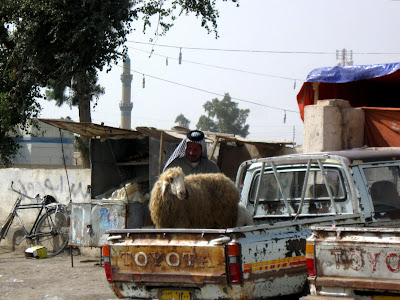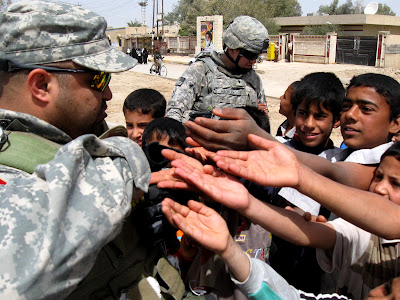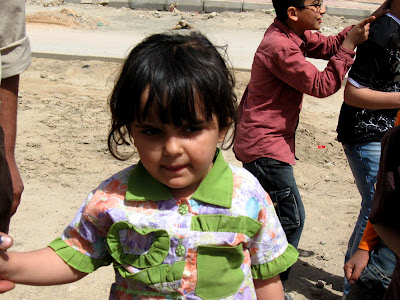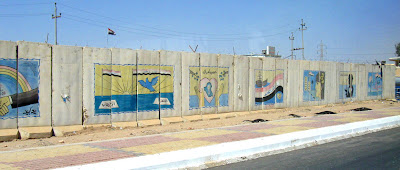
I read a review of the movie "Stop Loss." In the article the author noted that the Iraq War has been an artless war, and that any and all attempts to portray the last 8 years (to include 9/11) have been dull and failing endevors. Music and film were both supplemented in part by the imagery and emotion of the Vietnam War, but I don't think the artistic surge in the late '60s was strictly dependent on the fact that a long and controversial war was going on. There was a lot happening during that period, nuclear science used for warfare, civil rights, assasinations, the space race, and covert communists real and imagined. The better and more artistic films about Vietnam didn't surface till the end of the '70's/early '80s (i.e. Full Metal Jacket, Apocolypse Now).

So, my point. Hmm, not sure. Just something to think about I guess. To expect so soon after recent events lasting productions of historical and artistic value may just be too much to expect, and is perhaps more so just another symptom of our society's need for instant gratification and a desire to relive the past, or in the case of younger generations like myself, revive the past. But try to imagine folk music being popular now days. Not likely, but it depends on what one means by "popular" and "folk." As for music, as an industry, as a whole, it has lost artful meaning in large portions in the last 29 years (MTV sucks) and the top 40 has become pure ephemeral slush.

I would say artfulness itself has gone way back into the shadows and hides from the too bright lights of entertainment. TV shows have taken "reality" and turned it inside out so many times that what we see resembles nothing real at all. The mystery and magic intrinsic to art would seem to be MIA. Perhaps quantified, packaged, retailed and liquidated before we in the new melennium ever knew what it was. I will expect that the natural intrinsic element that is the art and the magic in all of us can and will find the hearts, minds, and eventualy the hands of current and future generations as they need to reflect the human condition that is common and not just common place like the clowns on awards shows and their followers.

Today, just after my camera batteries died, I watched what seemed like thousands of children pour out of a school while I waited outside a station across the street. I hope and imagine that the possibilities of artistic representations as it relates to the world's current state and the conflicts of the middle east might find its way to those kids I saw and kids like them. For something good to come of war. But along with the conflicts here continues the situational oppression of a culture oversaturated with a singular traditional, and sometimes radical, mindset. Religion has historically inspired as much art as it has destroyed. Islam is to the middle east, what commercialism is to the west. It has become an unmarked beast that destroys as we consume. But...I'm going to stop there...I'm not sure where I'm going with this, and I'm sounding too preachy. Hopefully, "just something to think about." This entry/post is a bit of the old me, the wannabe poet coming out in manifest diary.














































